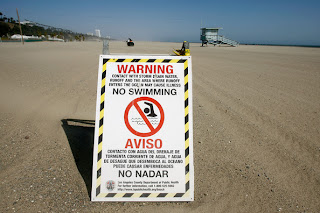Benbella Books, 2003
originally published 1972
388 pp
softcover
"We're divorced from reality, in the same way as the Romans went on thinking of themselves as invulnerable and unchallengeable long after it ceased to be true. The most awful warnings are staring us in the face..." (207)
The Sheep Look Up wins my award for most unique reaction after having finished a book. I felt all covered in grime and hungry for fresh air and water. This is one of those books that literally get under your skin and I was so happy to be out of Brunner's world it was unreal. While the novel is set in a dystopian future, James Bell, who wrote the book's "Afterword," states that John Brunner noted that what was most frightening to him about The Sheep Look Up
"with its vision of a world where pollution is out of control...is that I invented literally nothing for it, bar a chemical weapon that made people psychotic. Everything else I took straight out of the papers, and magazines..."
and if you think about that for just a moment, alarm bells should be going off in your head -- this book was first published over 40 years ago. Despite the grimy, thirsty feeling I was left with, this book also struck me as being one of the best works of environmentally-based fiction I've ever read. There's just something masterful in the novel's message of a clear and present danger for our future.
With only a few pockets of exception, the United States is a veritable cesspool. The seas are polluted beyond repair, acid rain in New York eats holes in people's clothing, the air is so bad that filtermasks (sold in vending machines) are required just to be outside, and "Don't Drink" the water alerts are common. Trash lays out, uncollected, spawning rats and other pests; exterminators are way too busy to come to one's home at short notice. Health problems are widespread, stds and other diseases normally treated by drugs have developed antibiotic-resistant strains, and parents whose children are born with only minor ailments or physical problems are considered extremely fortunate. The American government is run by a leader known as "Prexy," whose policy is one of blatant denial and blaming all of America's ills on terrorists. One man, Austin Train, knows the truth -- and he is public enemy number one where the government is concerned so is forced to go underground. Train is a committed environmentalist whose works have been studied and followed by others who have settled in commune-like places called wats where they put into practice what we'd call today "going green." Train is a peaceful person but many who have taken up his cause for a cleaner America are not. The "Trainites," as they call themselves, believe in more violent means of trying to "fix" things, something Austin Train would never condone.
 |
| from Zimbio, a beach in California |
Old this book may be, as noted above, published some 40 years ago, but it is still very much worth the read. The author has this way of thoroughly unsettling and disorienting his readers while keeping things moving at a fast pace, all the while making his point about what our future might look like in the not too-distant future. Pooh-pooh the didacticism if you so choose, which many people do, but imho, this is a novel that everyone who cares about and doesn't just give lip service to a better future might want to read. Don't forget the afterword -- the nonfiction, which should scare you even more than the novel did.


No comments:
Post a Comment
I don't care what you say about what I write, but do be nice. Thanks!